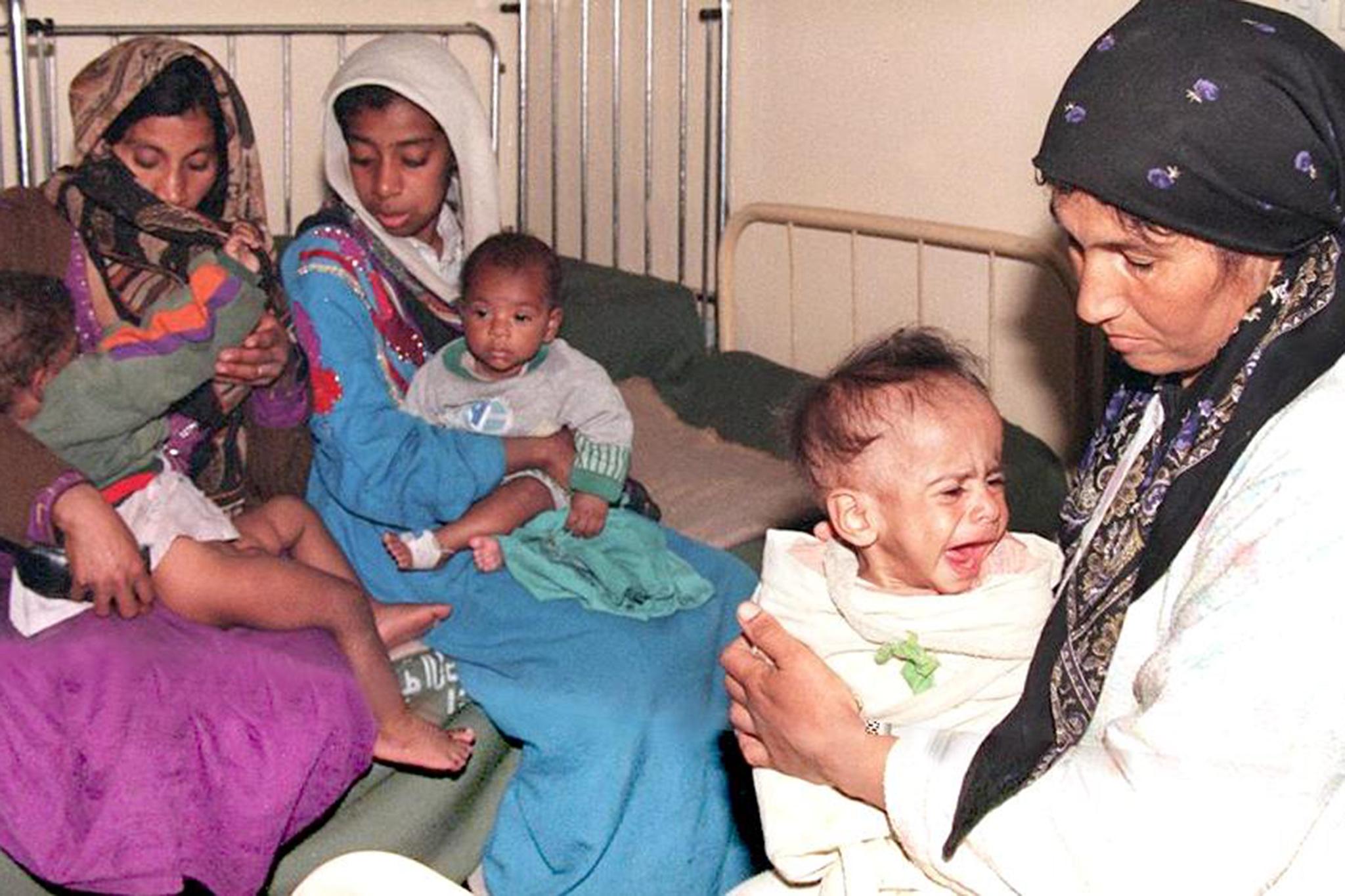They’re merciless and extreme, but sanctions rarely work
Donald Trump’s favourite strategy for exerting pressure is economic sanctions. From their use in 1990s Iraq to Iran today, these measures punish the poor while the elite emerges unscathed, writes Patrick Cockburn

I was in a village surrounded by orange trees by the Diyala river north of Baghdad in 1998 at a time when Iraq was the target of stringent UN sanctions. Looking across a field, I saw several men running towards me, clutching something in their hands. They turned out to be local farmers, who had been told that I was a visiting foreign doctor, and wanted me to look at ageing X-rays of their children, often taken a decade earlier when an X-ray unit in a nearby town was still operating. They said that it had closed down because of a lack of spare parts some time after an embargo – amounting to a tight economic siege – was imposed on Iraq by the UN after Saddam Hussein invaded Kuwait in 1990.
I explained to the farmers that I was a journalist and not a doctor. They were disappointed, but they still insisted on taking me to their homes to look at their sick children. One man produced his 10-year-old daughter Fatima, a little girl in a red dress, whom he supported with his hands under her armpits. She looked cheerful and healthy enough, but when he took his hands away her legs instantly gave way and she crumpled in a heap on the floor.
Back in Baghdad, farmers like the ones I had met in Diyala were envied because they were getting enough to eat and earnt good money by selling fruit and vegetables in the markets. In Iraqi cities the standard of living, which had been close to that of Greece in 1990, had plunged to a level close to that of Mali. The supposed aim of sanctions was to keep money out of the hands of Saddam Hussein and stop him rebuilding his military machine after his defeat in the first Gulf war. But the UN’s own statistics showed that their greatest and most lethal impact was not on Saddam or his regime but on the very young, the very old and the very sick. The World Health Organisation concluded by 1996 that “the vast majority of the population has been on a semi-starvation diet for years”. Another UN agency estimated that between 6,000 and 7,000 children were dying every month because of sanctions. A once high-grade health system was collapsing, as a visiting foreign medical team discovered when they witnessed “a surgeon trying to operate with scissors that were too blunt to cut the patient’s skin”.
Subscribe to Independent Premium to bookmark this article
Want to bookmark your favourite articles and stories to read or reference later? Start your Independent Premium subscription today.
Join our commenting forum
Join thought-provoking conversations, follow other Independent readers and see their replies